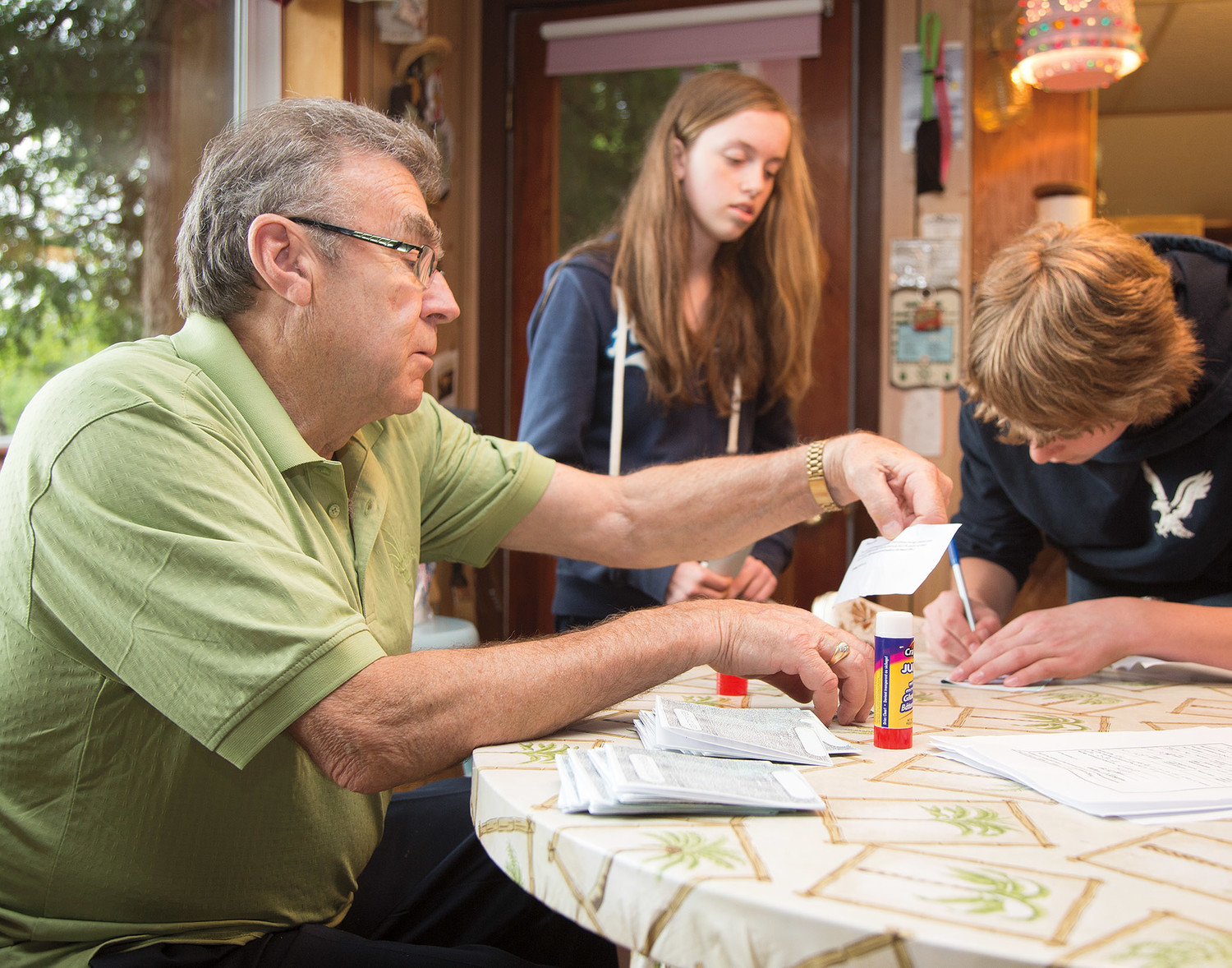Natasha Schmale’s photojournalism career began near her family’s farm in the central Alberta back country in 2005.
One night her parents, Dean and Doris, were bike riding on the back roads near Winfield, a small community an hour southwest of Edmonton. A man who looked lost stopped them, asking for directions.
As they chatted, the man told Dean he was the publisher of a magazine called Alberta Land and Life. Dean mentioned in passing that his daughter liked photography.
“Here, give your daughter this film, get her to fill it up and we’ll take a look at it,” the man replied.
In the coming weeks, Natasha filled the film with photos from the Alberta wilderness. When the man returned, he took the film and gave her another one to fill. Eventually the man asked Natasha to shoot the photographs for a story he was writing.
“Well, since you live there, why don’t you just write the article too?” he suggested.
Natasha agreed and her journalism career was born.
Once Natasha, now 27, graduated from high school, she decided to take photojournalism at the Southern Alberta Institute of Technology (SAIT) in Calgary. However, after finishing the two-year course in 2008, she found herself without a steady photography job, working instead at Home Depot. She hated the job and was frustrated with her life.
“I went to school, took all the training, and now I’m just selling plants at Home Depot,” she says about her thoughts at the time. “I was so frustrated with where I was in my own life that I didn’t bother to look around at what was happening around me. I was very focused on ‘how can I get out of here?’ I was just mad, basically all the time.”
Turning Point
Soon she picked up freelancing assignments at the Red Deer Advocate in central Alberta. Her schedule got so busy that she would sometimes work two months without a day off.
In this miserable, dark place in her life, however, she was motivated to find more meaningful work. She also yearned for a more authentic faith.
“I don’t think I fully understood that I am sinful, that I am broken; I don’t deserve anything and Jesus came, He rescued me and He redeemed me and died for me on the cross.”
Growing up in a Christian home, Natasha thought that she was a good Christian because she didn’t smoke, drink, party or have sex.
“I have Jesus, I’m good now, and I just carry on with my own life,” she told herself.
“It took me until my time in Red Deer where I realized, ‘No, actually, you might not have done these things, but you are a hypocrite, you’re selfish, you’re prideful, you are just as broken, and you need Jesus.’”
As she realized her need for Christ, she started Googling missionary organizations and looked into whether Wycliffe needed a photographer. That search led Natasha to contact Dwayne Janke, editor of Word Alive magazine.
“I had heard of Wycliffe from a friend but didn’t have much knowledge of what they did,” she explained. “Dwayne said they could use someone to help out with the photo library, so I did that as a volunteer.”
Months later, Natasha was invited to go on a Word Alive trip to Bangladesh to do the photography for the magazine.
The trip—her first overseas—opened Natasha's eyes to the importance of minority language groups having the Bible in their mother tongues.
“I realized that the world is bigger than my monolingual, white girl-from-a-farm worldview.
“[I saw] when you have education, and when you have people who are able to read and write—the opportunities that creates. Literacy improves their understanding of how valuable they are as people.”
During the trip, she decided to join Wycliffe and realized for the first time that photojournalism and missions could work together.
Capturing the “Right Now”
Natasha has now been with Wycliffe full time for more than three years. She has shot thousands of photos that are being seen around the world in Word Alive and a variety of other media platforms, including Wycliffe Canada’s website (wycliffe.ca), brochures and in displays.
“As a photographer, I have the opportunity to tell stories through the photos I take that hopefully help inform and engage others in the work of Bible translation, helping them to get a better sense of the need for Bible translation and also showing how Bible translation plays a role in building the Church,” she explains.
“But more than that I see [my job] as an opportunity to tell the stories of how Jesus is transforming lives all over the world; how He is growing His Church, how He uses the most unlikely people to remind all of us, here in Canada and overseas, just how powerful God's Word is and how the gospel changes everything!”
Moving In for Jesus
If you were to take a photograph of Natasha’s life today, you would see how much her love of Jesus has transformed her life. On this particular night, the energetic outdoors enthusiast is surrounded by friends at a crowded table in her northeast Calgary home. The smell of spices from a kale and sausage soup permeates the room, along with an abundance of laughter. She and her friends have joined a network of people across Canada who call themselves “MoveIn.”
The group of 20-somethings has moved into a low-income community in Calgary to share their faith with marginalized people.
“We are seeing we have nothing to offer these people except Jesus because we see so much brokenness, like 15-year-old girls on drugs who are addicted to cutting, or the 10-year-old boys who were fighting behind our complex all the time. I have nothing to offer them, absolutely nothing except Jesus.”
Thankfully for Natasha, Jesus is the difference. He has led her out of the back country to a life filled with purpose, touching nations through her work at Wycliffe.
•••••
